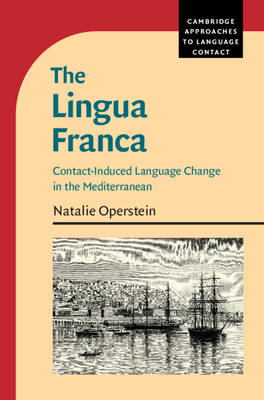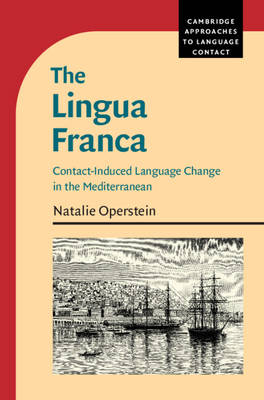
Bedankt voor het vertrouwen het afgelopen jaar! Om jou te bedanken bieden we GRATIS verzending (in België) aan op alles gedurende de hele maand januari.
- Afhalen na 1 uur in een winkel met voorraad
- In januari gratis thuislevering in België
- Ruim aanbod met 7 miljoen producten
Bedankt voor het vertrouwen het afgelopen jaar! Om jou te bedanken bieden we GRATIS verzending (in België) aan op alles gedurende de hele maand januari.
- Afhalen na 1 uur in een winkel met voorraad
- In januari gratis thuislevering in België
- Ruim aanbod met 7 miljoen producten
Zoeken
€ 198,95
+ 397 punten
Omschrijving
Whose name is hidden behind the anonymity of the key publication on Mediterranean Lingua Franca? What linguistic reality does the label 'Lingua Franca' conceal? These and related questions are explored in this new book on an enduringly important topic. The book presents a typologically informed analysis of Mediterranean Lingua Franca, as documented in the Dictionnaire de la langue franque ou petit mauresque, which provides an important historical snapshot of contact-induced language change. Based on a close study of the Dictionnaire in its historical and linguistic context, the book proposes hypotheses concerning its models, authorship and publication history, and examines the place of the Dictionnaire's Lingua Franca in the structural typological space between Romance languages, on the one hand, and pidgins, on the other. It refines our understanding of the typology of contact outcomes while at the same time opening unexpected new avenues for both linguistic and historical research.
Specificaties
Betrokkenen
- Auteur(s):
- Uitgeverij:
Inhoud
- Aantal bladzijden:
- 424
- Taal:
- Engels
- Reeks:
Eigenschappen
- Productcode (EAN):
- 9781316518311
- Verschijningsdatum:
- 2/12/2021
- Uitvoering:
- Hardcover
- Formaat:
- Genaaid
- Afmetingen:
- 152 mm x 229 mm
- Gewicht:
- 734 g

Alleen bij Standaard Boekhandel
+ 397 punten op je klantenkaart van Standaard Boekhandel
Beoordelingen
We publiceren alleen reviews die voldoen aan de voorwaarden voor reviews. Bekijk onze voorwaarden voor reviews.









